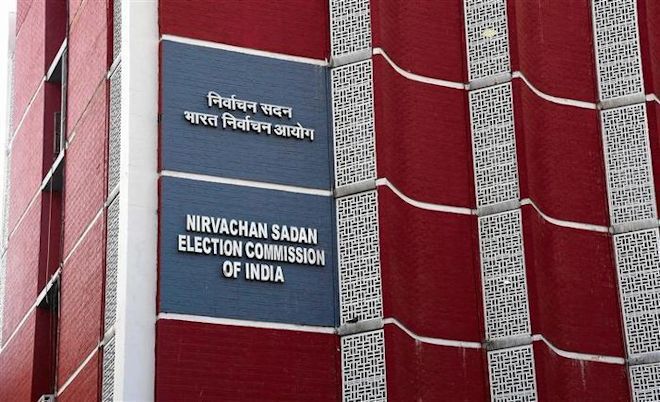Himachal government has removed the mandatory one-year field posting requirement for doctors serving at the Super Specialty Hospital Chamiana, a policy change that has sparked debate about equity in healthcare delivery and the state’s commitment to strengthening rural medical infrastructure. The exemption, formalized through a Health Department notification issued on Friday, applies exclusively to specialists at the Atal Institute of Medical Super Specialties (AIMSS) Chamiana and does not extend to doctors serving in other medical colleges or zonal hospitals across the state.
The policy modification represents the third revision to the resident doctor policy in just five days. The government initially amended the policy on October 10, 2025, then revised it again on October 15, before issuing this latest notification exempting Chamiana doctors from field postings. This rapid succession of changes suggests either inadequate initial planning or mounting pressure from medical professionals seeking to avoid rural service obligations.
Under the revised policy, senior residents serving at the super specialty hospital in Chamiana will no longer be required to complete a mandatory one-year field posting in remote or underserved areas—a requirement that remains binding for doctors at all other government medical facilities. The exemption appears designed to make positions at Chamiana more attractive to specialists, presumably to address staffing challenges at the state’s flagship super specialty facility.
However, the policy creates a two-tier system where doctors can choose between serving at a well-equipped, accessible urban hospital or facing compulsory rural postings at understaffed primary and community health centers. The immediate question this raises is: if specialists can bypass field service by opting for Chamiana, who will serve the rural populations that constitute the majority of Himachal’s residents?
The broader resident doctor policy framework in Himachal Pradesh mandates that doctors who complete postgraduate or super specialty courses in government medical colleges must serve a bond period. For senior residents, this typically includes a mandatory first year in field postings at peripheral health facilities. The state retains MBBS degrees until doctors complete their bond obligations or pay a penalty of Rs 40 lakh—a strict measure introduced after dozens of specialist doctors disappeared without honoring service commitments after completing their training.
Under the newly revised policy, postings with the National Health Mission, Chief Medical Officer offices, and the Health Directorate will now count toward the bond period’s peripheral posting requirement for senior residents. However, service as Casualty Medical Officers will no longer qualify as fulfilling the field posting mandate. Senior resident appointments will be made through written examinations at medical colleges in Shimla, Nahan, Hamirpur, Nerchowk, and Chamba, as well as at the Super Specialty Hospital Chamiana.
The exemption for Chamiana doctors stands in stark contrast to the staffing crisis plaguing rural health centers across Himachal. Recent reports from constituencies like Shillai in Sirmaur district revealed 11 vacant doctor posts across civil hospitals and Primary Health Centers, with the Community Health Centre in Ronhat functioning without any permanent doctor despite having two sanctioned positions. Similar vacancies exist across remote areas of the state, leaving thousands of residents without adequate medical care.
The state’s approach reveals a troubling pattern: making urban postings at premier institutions more comfortable while rural healthcare infrastructure continues to deteriorate from chronic understaffing. The Super Specialty Hospital Chamiana, located near Shimla with state-of-the-art infrastructure and residential facilities for doctors, naturally attracts medical professionals. Removing the field posting requirement makes it even more appealing compared to serving in remote PHCs that often lack basic amenities, accommodation, and professional development opportunities.
This policy shift raises fundamental questions about the government’s healthcare priorities. If the objective is to strengthen rural healthcare—where the need is most acute and the gaps most glaring—why create incentives that draw doctors away from underserved areas? The field posting requirement exists precisely to ensure that newly trained specialists gain experience serving diverse populations and that rural communities receive access to qualified medical care.
The Himachal Pradesh government has invested heavily in the Chamiana super specialty hospital, which offers advanced facilities in cardiology, neurology, nephrology, gastroenterology, and other specialties. The facility includes residential accommodation for junior and senior resident doctors along with hostel facilities for paramedical staff—infrastructure that remains a distant dream for most rural health centers.
In December 2024, the Indira Gandhi Medical College (IGMC) Shimla began relocating six super specialty OPDs to Chamiana, including neurology, endocrinology, nephrology, urology, plastic surgery, and gastroenterology, following a Himachal Pradesh High Court directive. This expansion has created additional staffing needs at Chamiana, which may explain the urgency to make postings there more attractive.
The High Court had earlier ordered that all stakeholders—including medical superintendents, department heads, doctors’ associations, and paramedical staff representatives—should be involved in deciding how best to utilize the Chamiana hospital. The court noted that such decisions cannot be left to the discretion of a single individual or group. Yet the recent policy exemption appears to have been implemented without broader consultation or public debate about its implications for rural healthcare access.





